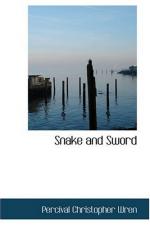Her charges were skilfully, if unintentionally, trained in hypocrisy and mean motive, to look for low reward and strive for paltry ends—to do what looked well, say what sounded well, to be false, veneered, ungenuine.
And Miss Smellie was giving them the commonly accepted “education” of their class and kind.
The prize product of the Smellie system was the Haddock whose whole life was a pose, a lie, a refusal to see the actual. Perhaps she influenced him more strongly than the others because he was caught younger and was of weaker fibre. Anyhow he grew up the perfect and heartless snob, and by the time he left Oxford, he would sooner have been seen in a Black Maria with Lord Snooker than in a heavenly chariot with a prophet of unmodish garment and vulgar ancestry.
To the finished Haddock, a tie was more than a character, and the cut of a coat more than the cutting of a loving heart.
To him a “gentleman” was a person who had the current accent and waistcoat, a competence, the entree here and there—a goer unto the correct places with the correct people. Manners infinitely more than conduct; externals everything; let the whitening be white and the sepulchre mattered not.
The Haddock had no bloodful vice, but he was unstable as water and could not excel, a moral coward and weakling, a liar, a borrower of what he never intended to return, undeniably and incurably mean, the complete parasite.
From the first he feared and blindly obeyed Miss Smellie, propitiated while loathing her; accepted her statements, standards, and beliefs; curried favour and became her spy and informer.
“What’s about the record cricket-ball throw, Dam?” inquired Lucille, as they strolled down the path to the orchard and kitchen-garden, hot-houses, stream and stables, to seek the coy, reluctant worm.
“Dunno,” replied the boy, “but a hundred yards wants a lot of doing.”
“Wonder if I could do it,” mused Lucille, picking up a tempting egg-shaped pebble, nearly as big as her fist, and throwing it with remarkably neat action (for a girl) at the first pear-tree over the bridge that spanned the trout-stream.
At, but not into.
With that extraordinary magnetic attraction which glass has for the missile of the juvenile thrower, the orchid-house, on the opposite side of the path from the pear-tree, drew the errant stone to its hospitable shelter.
Through the biggest pane of glass it crashed, neatly decapitated a rare, choice exotic, the pride of Mr. Alastair Kenneth MacIlwraith, head gardener, released from its hold a hanging basket, struck a large pot (perched high in a state of unstable equilibrium), and passed out on the other side with something accomplished, something done, to earn a long repose.




